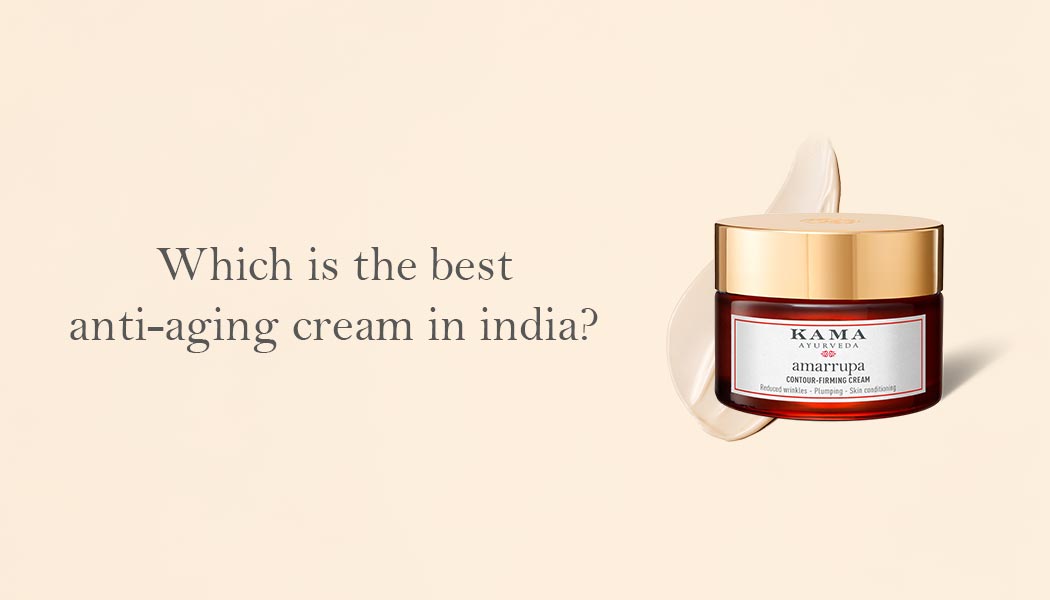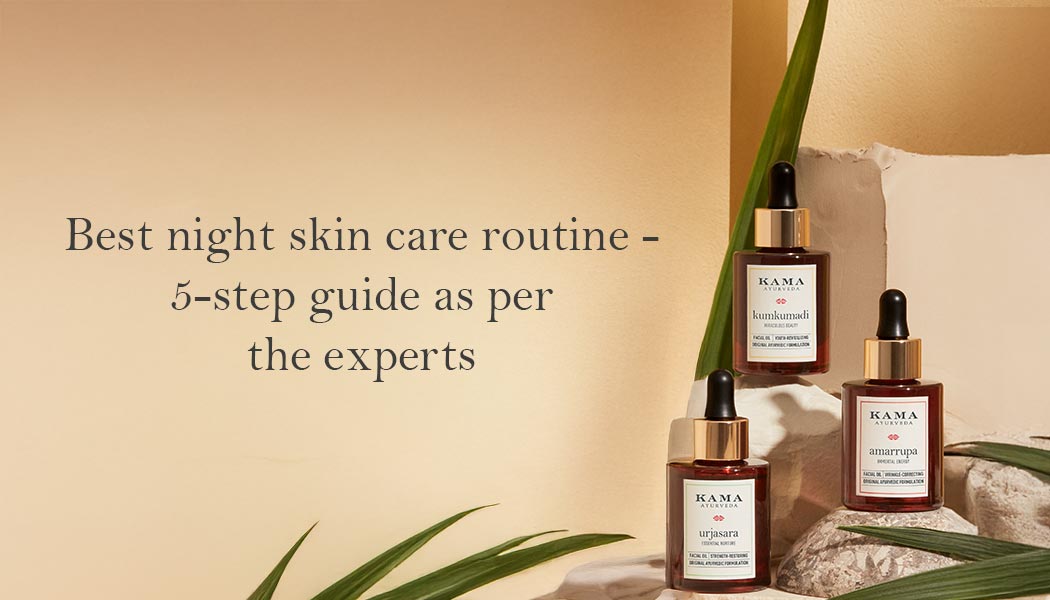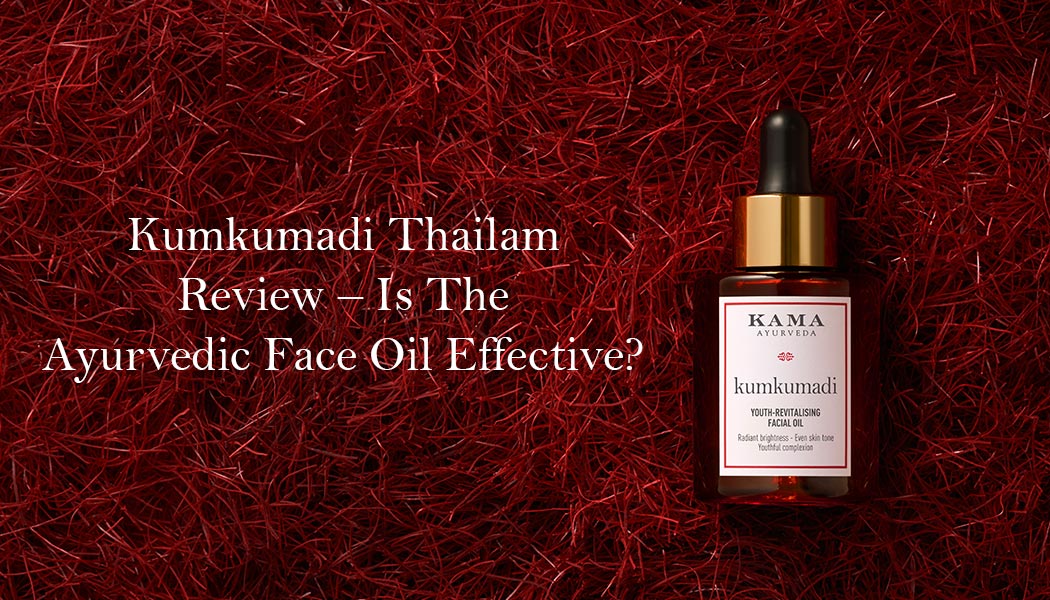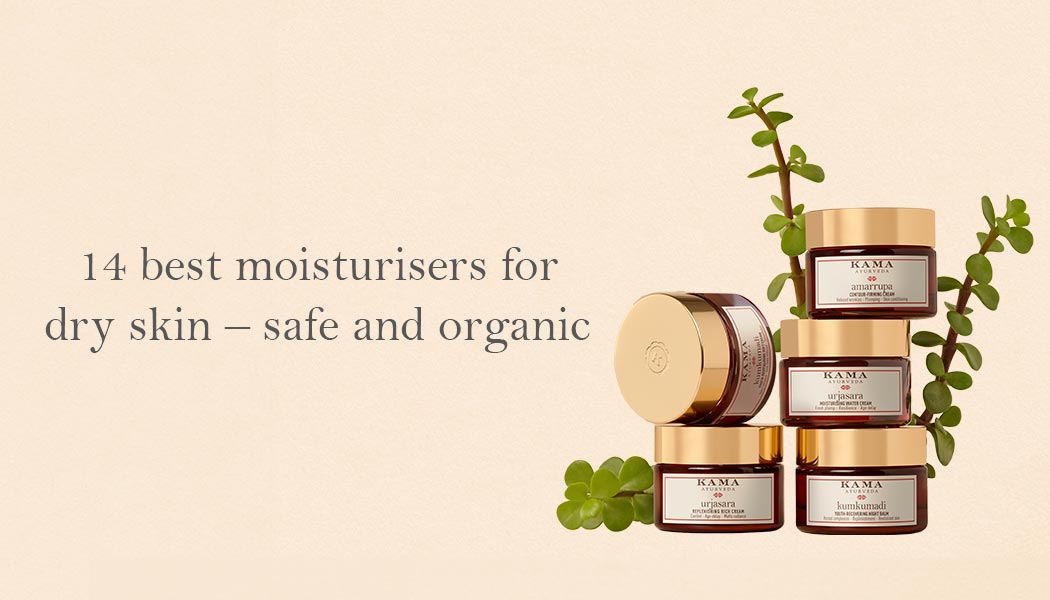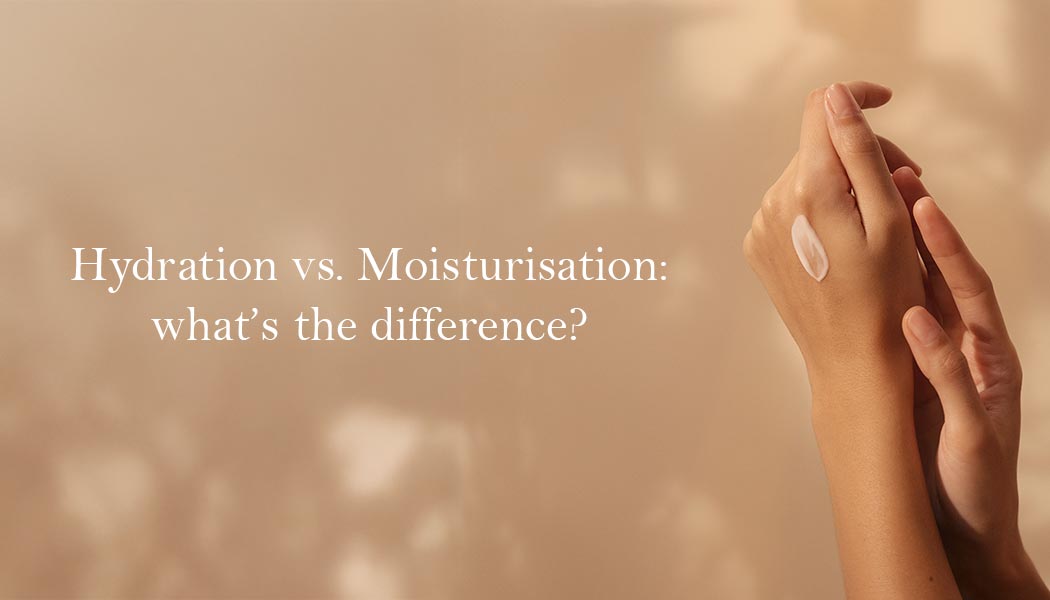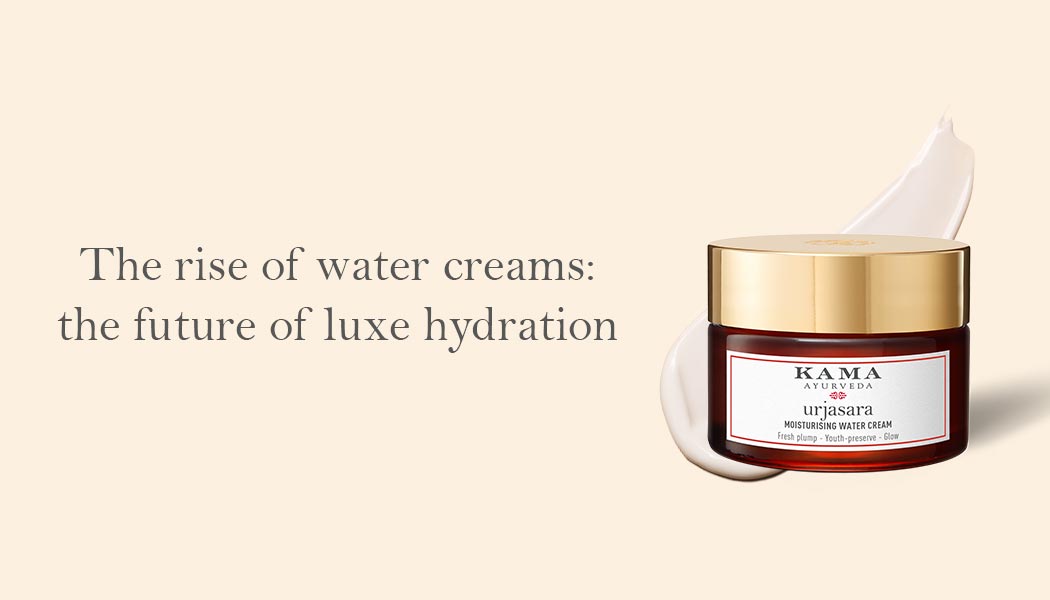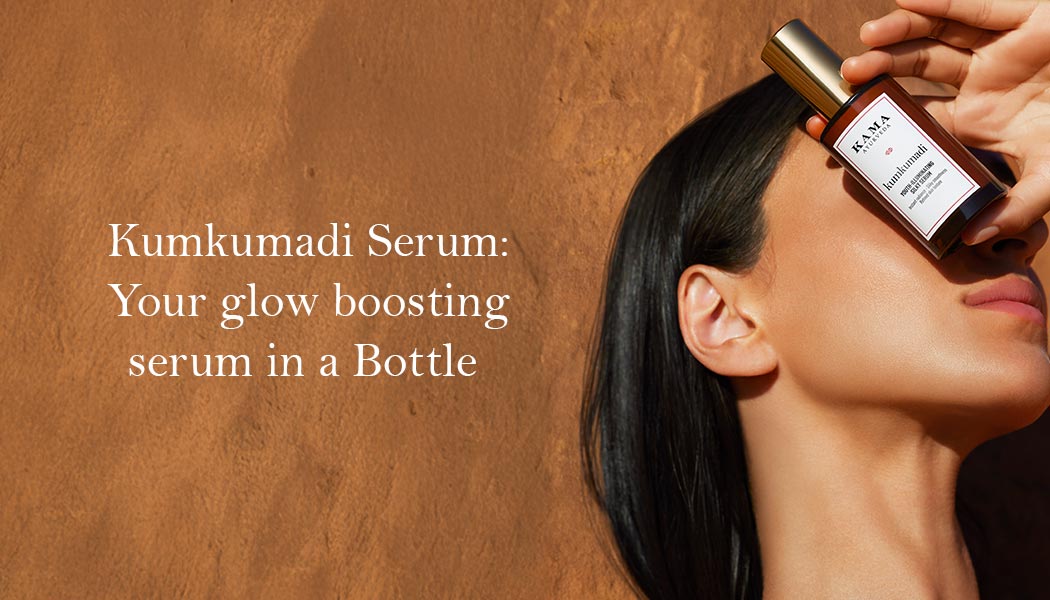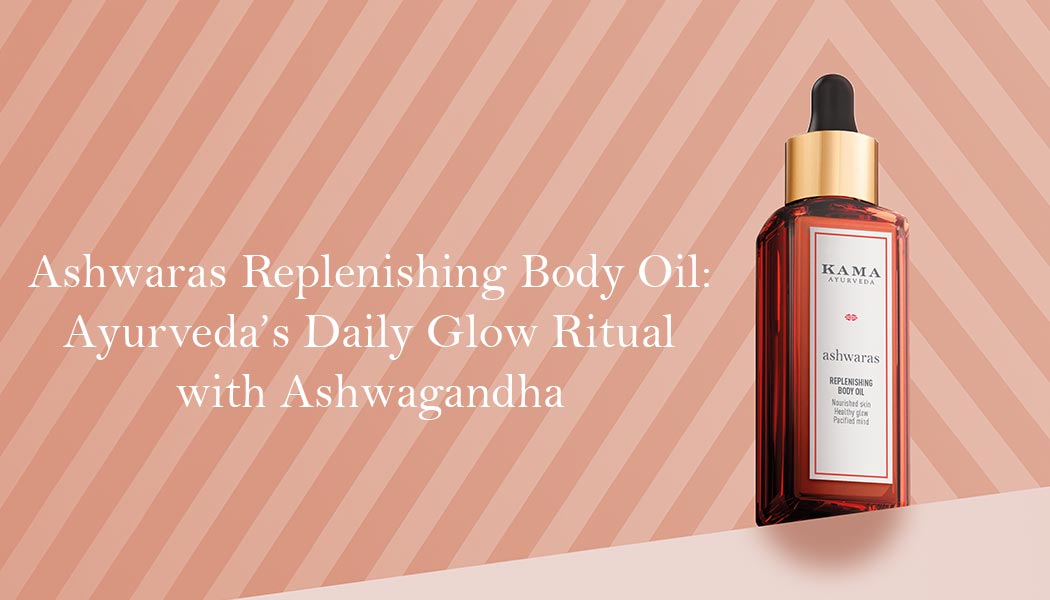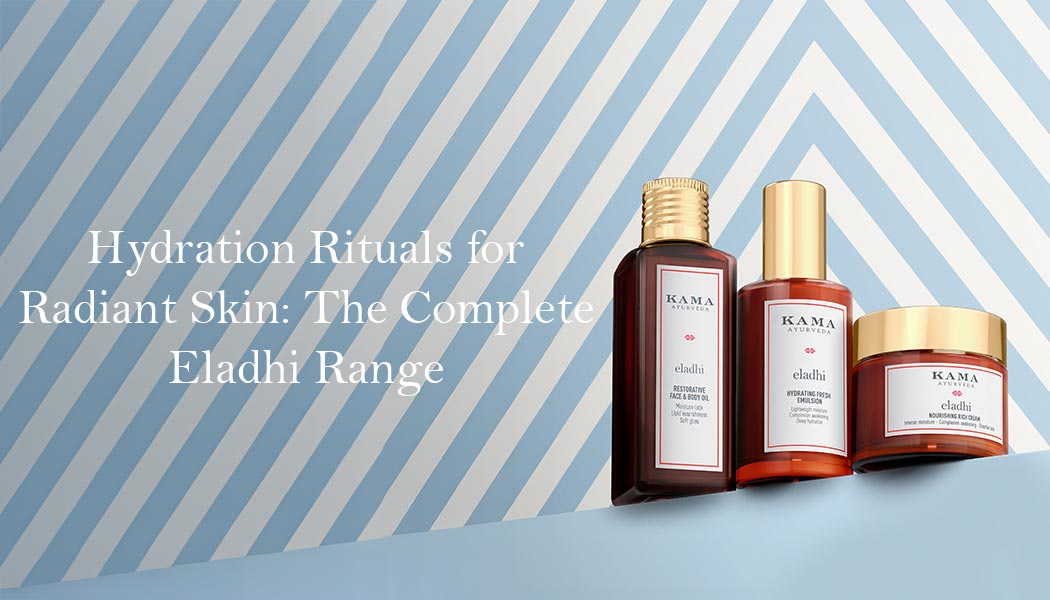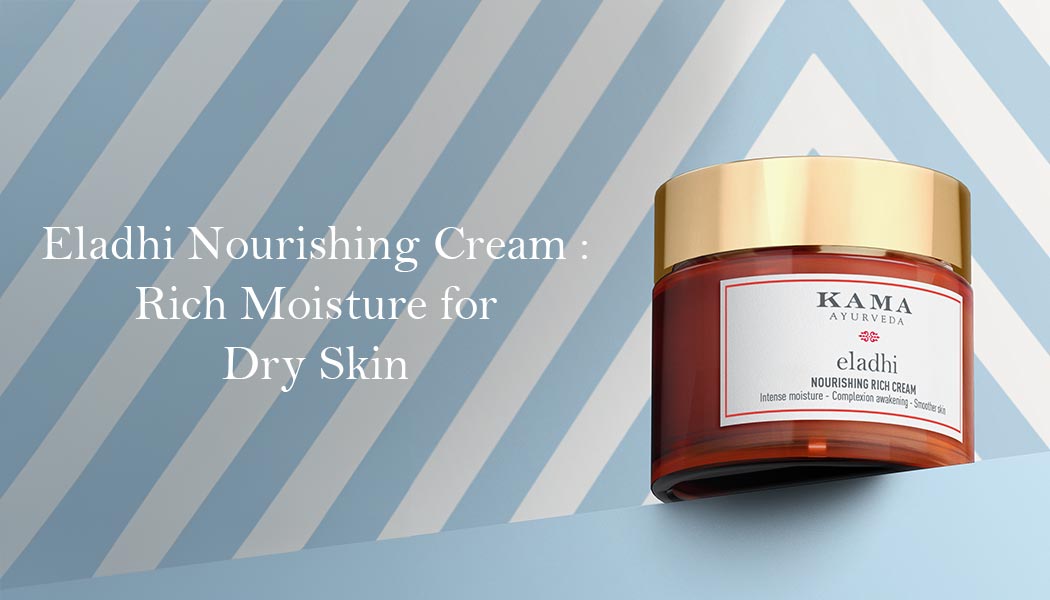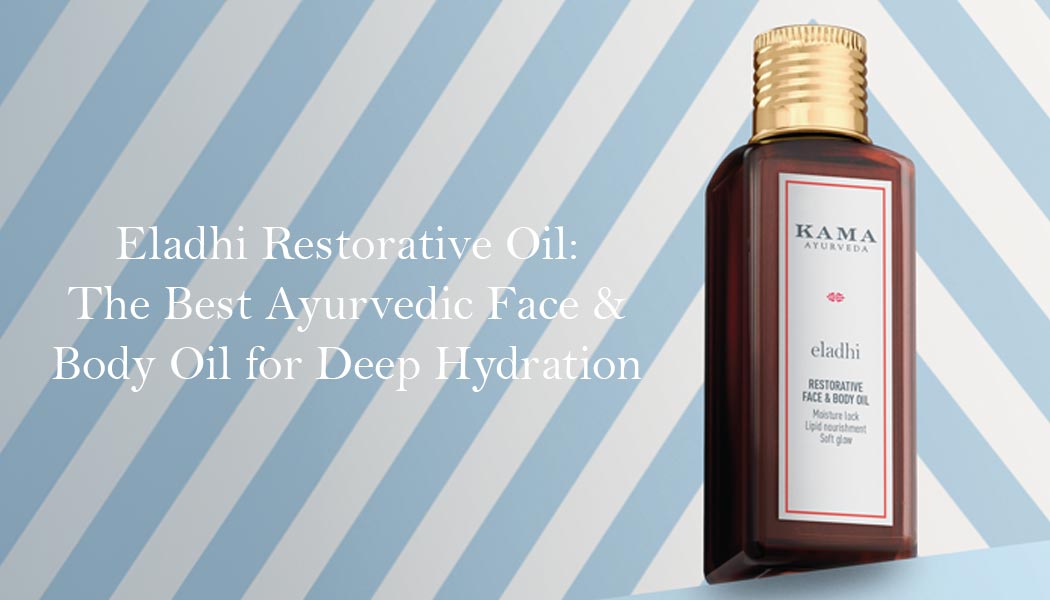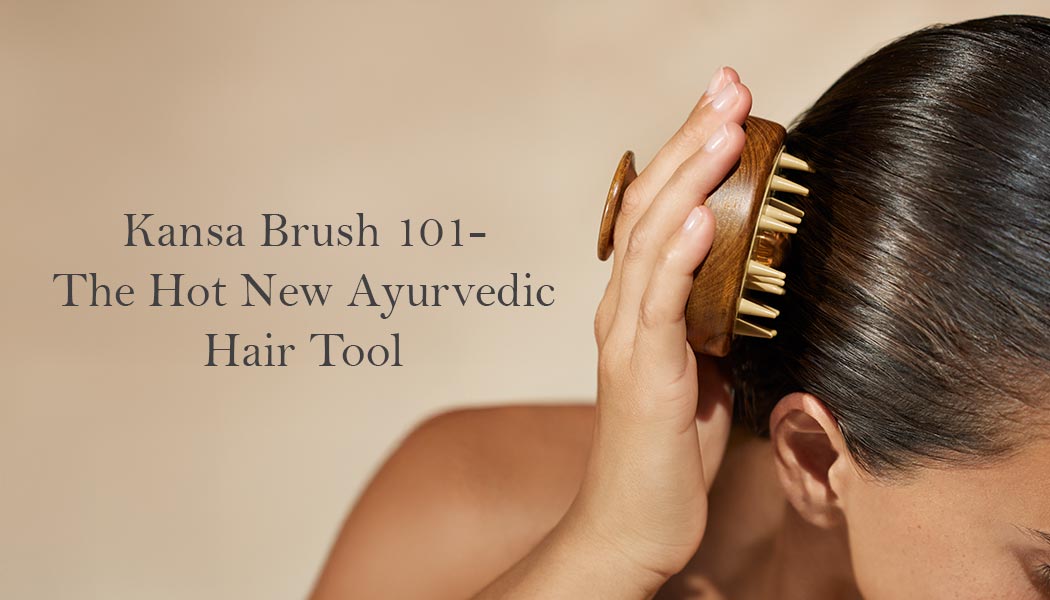- 1 August 2022
- 5 mins read
Your face is probably the most exposed area of your body, bearing the brunt of all the heat and dust every time you step outside.Though your daily skin care regime with cleansing, toning and moisturising goes a long way to keep your skin healthy, the three- step formula might still fall short to protect your skin from the damage and keep it glowing. So, what you need to do to get that radiant, glowing skin is to add a key step: exfoliation by adding a gentle face scrub to your routine. Not only does exfoliation help get rid of dead skin cells but also helps reduce pigmentation and smoothens skin.
Now let’s go ahead and understand all the benefits of using a face scrub for dark spots and get introduced to two great Ayurvedic face scrubs.

Benefits of a Natural Face Scrub
Over time, dead skin, sebum and dirt gets accumulated on your face, making your complexion look dull and your skin rough. A natural face scrub helps to get rid of all this excess buildup and improves the texture of your skin. Here are a few ways a face scrub can benefit your skin:
1. Helps Prevent Acne
Face scrub helps in keeping your pores squeaky clean and unclogged. This not only helps in reducing the acne but can also help prevent further breakouts, especially on sensitive skin.
2. Removes Flakes
Those little dry patches on your skin are called flakes. A face scrub can work wonders in getting rid of that flaky skin and gives a smoother and toned touch to your face.
3. Reduces Dark Spots
Using face scrub for dark spots regularly will eventually make them more and more lighter. The face scrub exfoliates the layer of damaged skin which is then replaced by the recharged skin underneath. Using an Ayurvedic face scrub also helps to even out your skin tone.
4. Improves Absorption of Products
It is clear by now that face scrub removes the unwanted layer of dirt off your face, and hence makes your skin a clean canvas which can better absorb the products so that they can work better. With an exfoliated skin, the product seeps deeper into the skin and helps your moisturiser and toner hydrate your skin in the best way possible.
What is the best treatment for dark spots on the face?
A sure shot way of treating dark spots is getting rid of the dull dead skin layer on the face. A good face scrub just does that and more. Here are ayurvedic face scrubs that will help you get brighter, clearer and spot-free skin:
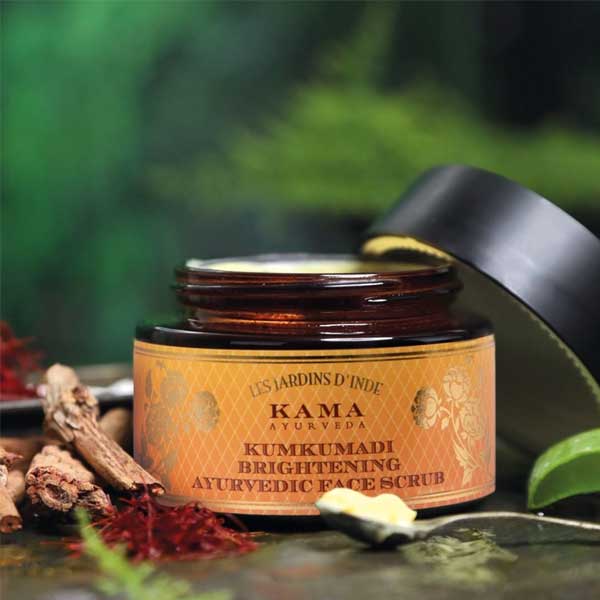
For Women:
Kama Ayurveda Kumkumadi Brightening Ayurvedic Face Scrub
Here’s a scrub that feels like luxury for your skin. Enriched with the nourishing and brightening kumkumadi oil, this face scrub comes with host of skin restoring ingredients and is clinically tested* to smoothen skin and reduce pore size. It is a 100% natural exfoliator made with Kama Ayurveda’s ICONIC Kumkumadi Oil and 12 other ingredients such as Sweet Almonds, Kashmiri Saffron, Sunflower Seeds and Lotus extracts. Finely ground Walnut and Sweet Almond powder nourish the skin while removing impurities, excess oil and dead skin cells.
*Based on clinical trials conducted over 28 days*
For men:
Himalayan Almond Deep Cleansing Face Scrub
Ingrown hair and rough skin are two skin struggles most men deal with. Regular exfoliation is a sureshot way to prevent these conditions and here’s the perfect, natural, ayurvedic scrub to do it with. Himalayan Almond Deep Cleansing scrub is formulated especially for rough and damaged skin and helps encourage new cell growth, while removing dirt, dead skin and excess oil, leaving your skin much smoother and moisturised. It comes with antioxidant-rich Saffron that brightens the skin and fights pigmentation and reduces dark spots, and finely ground sweet almonds rich in vitamin E and D that gently scrub away impurities while retaining the skin’s natural moisture.
How Often Should You Use A Granular Scrub?
There are two types of exfoliators available in the market: physical exfoliators and chemical exfoliators. The former includes a tool like scrub brush or granular agents like sea salt, sugar, nut powders that work as exfoliators. Chemical exfoliators include ingredients such as AHAs and BHAs to remove the dead skin layer. Both kinds of scrubs have their own merits or demerits and should be used in moderation.
Depending on your skin type, you should exfoliate using a gentle scrub once or twice a week as you don’t want your skin to be overly scrubbed to the point where it gets micro tears or strips it off its natural moisture completely. Other than skin type, another thing to consider while deciding on an exfoliation frequency is the skin condition: whether it's under stress, recovering from breakouts, or has other issues such as eczema or psoriasis. Exfoliation is generally a bad trigger for conditions like these and must be performed with utmost care.
It’s advised not to exfoliate your skin more than 1-2 times a week.
Granular scrubs: ingredients to use and avoid
Granular scrubs, in the beginning, came with the promise of exfoliating your skin using microbeads and nut shell powders. As a result, these coarse exfoliants had a tendency of causing skin irritation and micro tears. However, granular scrubs have since evolved to have milder, finer exfoliators that don’t cause these problems and effectively clean out your pores.
Look for small, gentle particles such as sugar, finely ground coffee, crushed nuts like macadamia and walnuts, cinnamon, oatmeal, flour particles, fine sea salt etc. Stay away from large particle scrubs like nut shell powders like apricots and synthetic beads as they are prone to scarring your skin and cause infections. Also look for moisturising agents in your scrubs, especially if you have dry skin. Go for scrubs that have hydrating oils such as rosehip, olive or avocado oil.
So, now you know how to use an ayurvedic face scrub for dark spots and a healthy radiant skin, it is time to add it to your sacred regime.
FAQs
1. What does face scrub do?
The purpose of a face scrub is to exfoliate your skin and bring out the youthful, healthy and glowing skin out front. A good face scrub helps in unclogging the pores and making your skin smoother and it also brings back the lost glow on your face.
2. Can face scrub remove dark spots?
A face scrub might not be able to remove the dark spots right off, but routinely using face scrub for dark spot certainly helps in making them lighter, eventually fading them away. Every time you exfoliate your face, the skin is replenished to reveal a layer of renewed cells on the surface, which means lightening of the dark spots and an even- toned skin.
3. How many times a week should I scrub my face?
The frequency of scrubbing your face actually depends on your skin type and condition.
If you have dry skin then you should avoid daily scrubbing and exfoliate only once or twice a week. If you have oily skin, use a gentle face scrub daily to remove the excess sebum off the skin. If you have sensitive or acne prone skin then you should also choose to scrub only once or twice a week using a hydrating scrub as the other ones could lead to irritation and breakouts.
Sources
- https://ijcrt.org/papers/IJCRT2203364.pdf
- https://www.healthline.com/health/beauty-skin-care/meaning-of-exfoliating
- https://www.healthfitnessrevolution.com/top-10-benefits-of-exfoliation/
- https://www.westlakedermatology.com/blog/chemical-vs-physical-exfoliation/
- https://www.byrdie.com/how-often-should-i-exfoliate-my-face
Mahima Agarwal is a writer and content creator with 7 years of experience in the digital and lifestyle content industry. She supports clean, environment-conscious fashion and beauty products and also recognises the power of ayurveda when it comes to skincare. Mahima loves to gather inspiration for her writing travelling the world.

Certified Ayurvedic Doctor (Central Council of Indian Medicine) working in Kama Ayurveda as an Assistant Training Manager.




